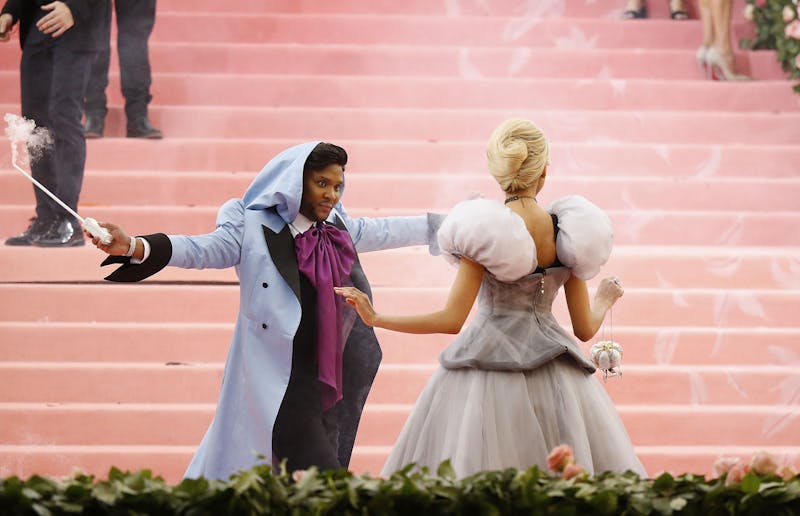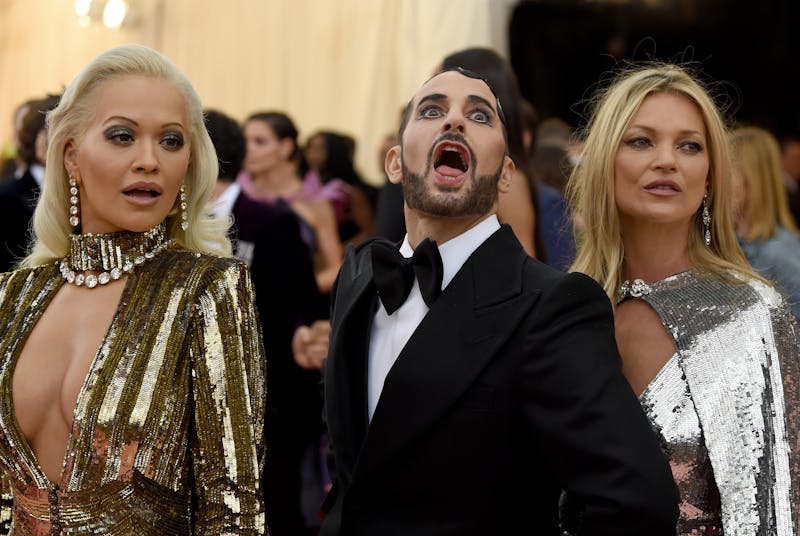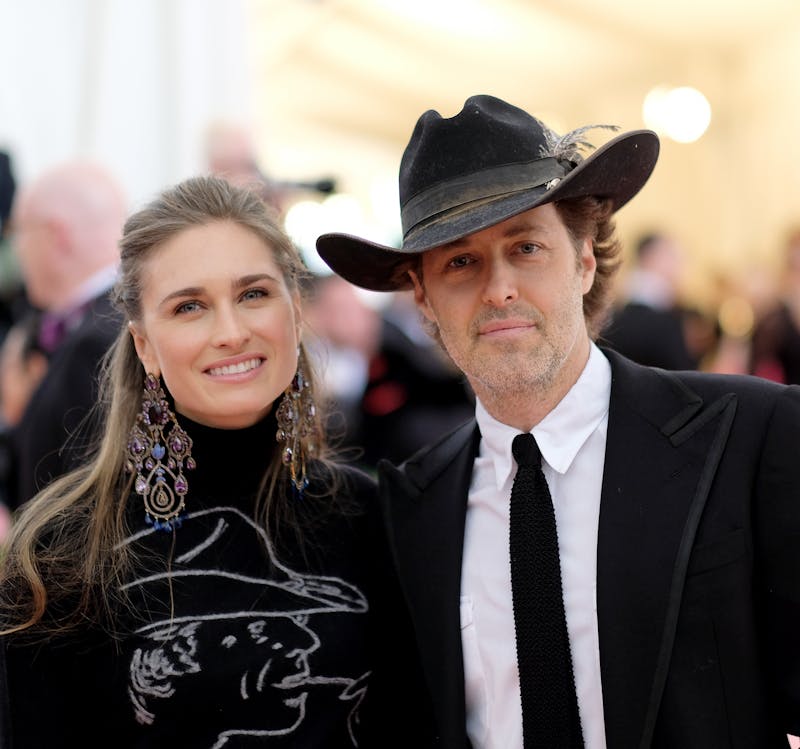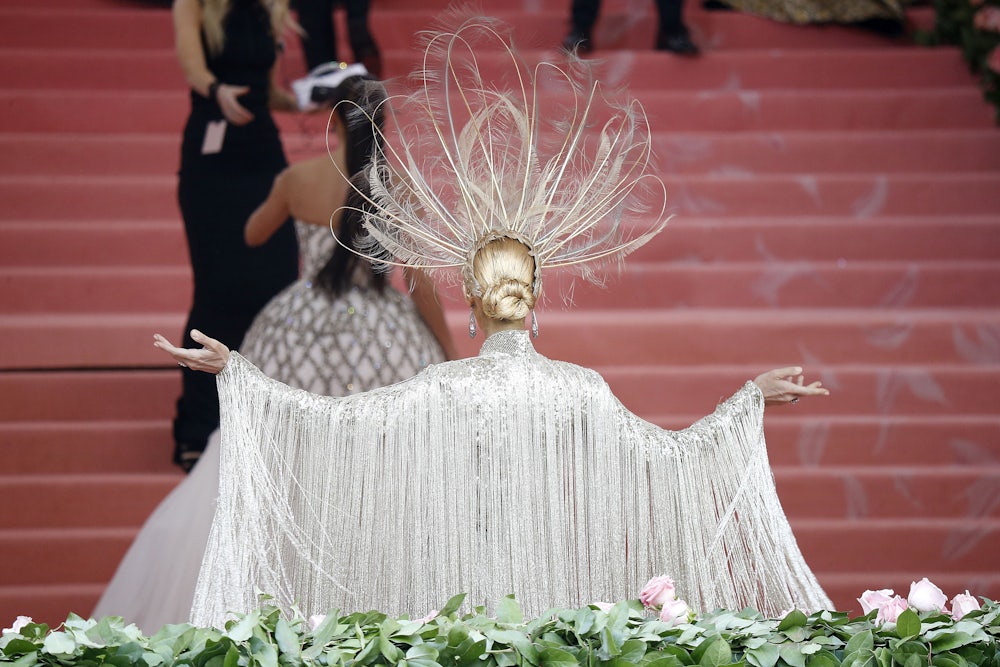The Metropolitan Museum of Art’s annual fundraising gala this year was themed “Camp: Notes on Fashion.” It occasioned much exhausting handwringing among the commentariat, who couldn’t help but note that Susan Sontag, beloved doyenne of the provocative and occasionally flimsy declaration, had once defined camp as a “woman walking around in a dress made of three million feathers.” It’s a definition that equates camp with frivolous excess, except that’s not it exactly, since Sontag’s “Notes on Camp” essay contains 58 different definitions. Arguing about them is far more an aristocratic pastime than camp itself.
Take Sontag’s 38th principle of camp: “Camp is the consistently aesthetic experience of the world. It incarnates a victory of ‘style’ over ‘content,’ ‘aesthetics’ over ‘morality,’ of irony over tragedy.” This principle asserts that camp can appear apolitical while actually being subversive. The camp character is not just a useless decoration, but a political actor who refuses literal-mindedness and its limited modes of expression.
The best place to see Sontag’s camp theory in action in our own era is in fiction. In Suzanne Collins’s fantasy novel The Hunger Games, for example, there is a very camp character named Effie Trinket, who initially appears evil and stupid (she is the government’s pawn), but ends up as a sort of fairy godmother to the book’s girl hero. She wears ridiculous wigs and her job is to shape Katniss’s image, not to care about a human rights agenda—until she does.
This is political allegory played out through gender stereotyping. Effie’s feminine fashion symbolizes an ineffectual and “unnatural” aristocracy; in contrast, the proletarian Katniss loves and understands the woods. Effie’s exaggerated femininity is camp, and it is at first the enemy of the workers’ movement. But Effie is eventually redeemed when she switches her allegiance to Katniss. She stays glamorous, but the freaky fashionista is now an enemy of the state: It turns out that camp can undermine fascist authority, in part by ignoring its lack of humor and disdaining its ugliness.
Now, let’s see if all that can fit into an hour or two of pink carpet drama.

We don’t live in a dystopian novel, but we do live under an authoritarian, right-wing government. Various writers have questioned whether camp’s ironic subversion works at all under these conditions. After Trump’s election in 2016, for example, Christy Wampole wrote in The New York Times that irony was now well and truly dead. Camp runs on irony, because it’s all about speaking obliquely, saying the opposite of what you mean (Effie only pretends that she only cares about wigs, since actually she cares about wigs and workers).
Wampole’s view of irony under Trump would make Effie’s form of camp resistance impossible: “Now that the luxury of ironic posturing is no longer affordable, we should be prepared for a new, expressive austerity.” Irony is indulgent, Wampole’s argument goes, just as enjoying one’s own queerness must now be laid aside in favor of campaigning for the right to queer existence. There is no place for mocking laughter—the sharpest arrow in the queer and feminine quiver—in Trump’s America. Only direct speech will be heard.
Contra Wampole and in the true spirit of the Sontagian Effie Trinket, the Met’s theme appeared, at least at first, to insist: Irony still works. Arch posturing remains, in the museum’s interpretation of Sontag, a glorious confutation of our ugly, old, male oppressor. We can refuse to speak his language and instead define our own political forum.

By invoking camp as a political and aesthetic tradition, the party announced its own raison d’être. It is too bad, then, that the camp of the Met Gala pink carpet this year was domesticated and defanged by earnestness.
Only profound statements worked: Billy Porter arrived borne aloft by muscled arms, golden wings spread in a triumph that felt real, not affected. Lena Waithe wore a jacket by Kerby Jean-Raymond of Pyer Moss, whose back read “Black Drag Queens Invented Camp” (black drag queens like Billy Porter’s character Shiniqua in the 1997 movie Twisted, perhaps). These statement appearances were enigmatic but not too complicated. And they looked cool, especially beside the contortions of attention gluttons like Lady Gaga and Katy Perry (dressed as candelabra), cutting through their obsequious capers like tonic through gin.
They were not, however, very on theme, being authentic and therefore not funny. And as many watching at home observed, last year’s gala was the campest thing imaginable anyway, being not only based on but sponsored by the Catholic Church. The actual church! Its actual money, snatched from the Pope’s handbag and placed on Rihanna’s head in the form of a sparkling mock-mitre.

There remained splinters of the truly amusing on last night’s carpet. Naomi Campbell looked perfect except for her cheap white lace tights, like twin specters of the 1990s inhabiting one body. Gisele Bündchen refused to go on-theme, instead parading her moisturized and smug genetic superiority, safe in the knowledge that she was born to be an ersatz tribute to Studio 54. Lauren Bush Lauren stood beside her husband David Lauren, wearing Ralph Lauren, as if caught in a brand vortex that incorporated both the Iraq War and every polo shirt worn in the 1990s.
These inadvertent camp moments, where the party guest did not realize the ironic connotations of their own costume, were pure gold. Camp cannot be administered from on high, it turns out, because authority drains all the subversion out of the joke. Camp will always find a way to laugh at the powers that be, against all the efforts of those powers to contain it, repurpose it, or use it to make money. Nobody, not even Anna Wintour, can anoint themselves camp’s mistress.
